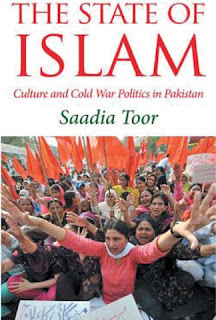The ‘Humsafar’ fever!The Revival of the Pakistani Drama: Why Humsafar Is Taking Everyone by Storm
Log in to social networking websites on a Saturday evening and you can’t help but notice Twitter, Facebook and Youtube flooded with comments about ‘Humsafar’. The drama serial on HUM TV has more than 135,000 Facebook fans and it is topping the charts everywhere. Fawad Khan and his character of Asher are perhaps the most popular topics for young girls on a Saturday night.
Unless you’ve been living under a rock, if you’re Pakistani and own a television or have access to the internet– or better yet, a Jadoo TV box–chances are you’ve heard of “Humsafar”, the latest craze to take over everyone’s Saturday evenings. It’s a soap opera that some might argue has developed nothing short of a cult following, as viewers religiously tune in every week to watch the show that has also seemingly revived the “Pakistani drama” genre for multiple generations. So what is all the buzz (and incessant tweets and Facebook statuses) about?
“Humsafar” focuses on the delicate balance of relationships amongst its three attractive leads: Fawad Khan, Mahira Khan, and Naveen Waqar. Fawad Khan and Mahira Khan are forced by circumstances to wed and eventually develop a loving relationship, only to be torn apart. How their innocent love forms, and is then brutally destroyed, forms the core of the story.But what is it about this specific show that pulls viewers in week after week? What works? For one, the writing and characterizations captivate the audience and make it an addicting watch. You learn and grow with these characters, whom you come to love as your own. The most appealing facet is perhaps how flawed each character is–ego, insecurities, jealousy and love–it’s all here. The actors also share immense chemistry, so much so that fans have already created tribute videos for ‘KhiShar’ (after their characters, Khirad and Ashar) on Youtube. And with a talented supporting cast, every performance compliments the main storyline perfectly.
The style of the Pakistani drama is also a factor. With a shelf life of about 20 episodes (21 for Humsafar), these dramas promise continuity without dragging you down with the dreary and long commitment other shows carry. Think of it as comparable to one of your favorite HBO miniseries, or just one really good season of a cable network TV show. There’s no intense panning or zooming in and out. And thankfully, there is no obnoxious, intense music to accompany said panning in and out.
Bear in mind also that even though it’s called a “drama”, the art behind the success of Humsafar lies in the subtleties–be it the quiet romance, the characters’ minor nuances, or the understated acting. Coupled with the aforementioned qualities, the show’s subdued nature leaves an indelible impact on the viewer. Fawad Khan’s skills as an actor are can easily surpass some of Bollywood’s finest. Mahira Khan’s expressions and dialogue delivery are seasoned far beyond her years, and Naveen Waqar portrays the conflicted antagonist beautifully.
Verdict? With heartwarming moments that make you smile, or shocking turns that elicit collective groans in households across America, Humsafar has achieved what no other recent drama has done: Bring back a big piece of Pakistani culture into our lives.
“That’s why Humsafar is such a big hit,” he continues. “I have great respect for the aesthetics of Hum TV. They are educated people and that reflects in their work. Humsafar initially read like a regular saas-bahu saga but when I was told that Mahira (Khan) and Naveen (Waqar) were in it with Atiqa Odho and Hina Bayat, I felt it would be interesting. The nexus was interesting and we were allowed liberties with the script.”
Humsafar, an adaptation of Farhat Ishtiaq’s Urdu novel, was a 600-page script when it was handed out to the cast. But the production team including Momina Duraid and director Sarmad Khoosat allowed them to modify it up to “60 per cent”.
The only thing they couldn’t, or didn’t want to change was the inhibition on displaying intimacy. While watching Humsafar one senses an acute dearth of intimacy between Asher and Khirad, especially when they are falling in love.





